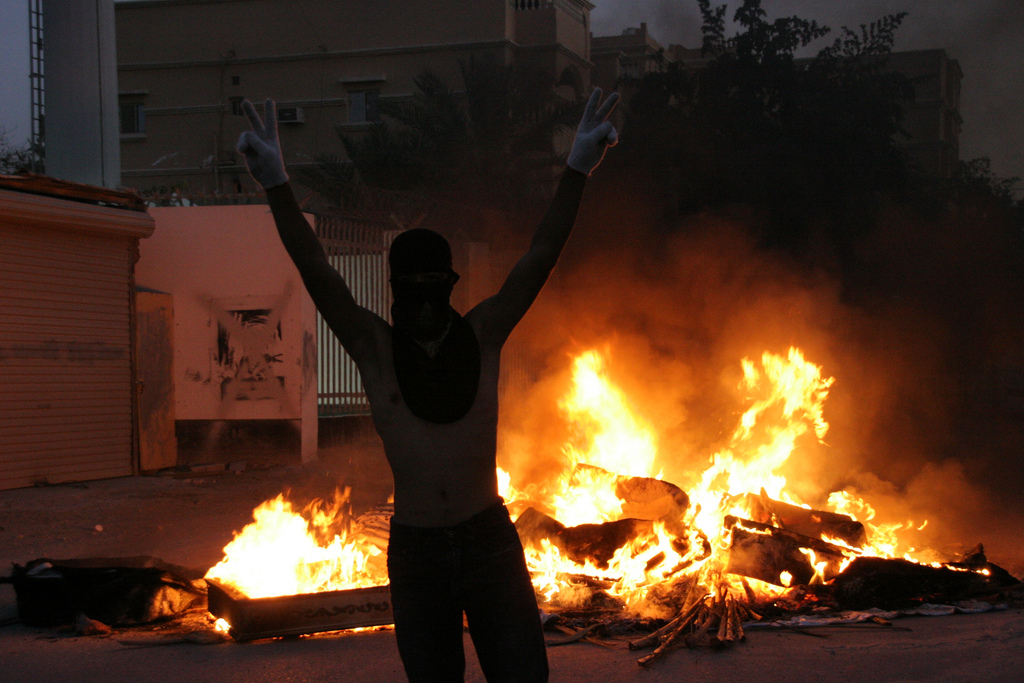Surveillance: Hermes wants review of the FOIA request to Italian Ministry
Together with Privacy International and the Hermes Center, last April we wrote to the Ministry of Economic Development about exports of surveillance technologies by Italian companies.
In the letter we urgently requested the publication of detailed information on these instruments following a documentary aired on Al-Jazeera that showed Italian and international companies claiming to offer the possibility of exporting surveillance equipment to authoritarian countries – including Iran and South Sudan – which regularly violate the human rights of their populations.
The letter — taken up and published by several newspapers, including La Stampa, Repubblica, L’Espresso and Wired Italia — was followed by an access to information request sent by Fabio Pietrosanti of the Hermes Center for Transparency and Digital Human Rights, and asked for more information on the subject to be published, as well as further clarification as to which licenses had already been approved and rejected.
As a result of the failure of the Ministry of Economic Development to reply within 30 days, a request for review was sent to the Anti-Corruption Manager in response to the failure of the Transparency Manager to represent the Ministry as provided for by law (and in particular by Legislative Decree 33/2013).
The subject of the FOIA request
The FOIA request was sent 26 April 2017 and covered the following documents:
- “Communication documents relating to operational outcomes concerning the granting, refusal, suspension, or revocation of dual-use export authorizations sent by MISE to the companies that have applied for export authorization, registered in the protocol of the entity, relating to Wassenaar Categories 5A001f and 5A001J”
- “Details of the export license provisions for each license application received / authorized / refused / suspended / withdrawn for the Wassenaar Categories 5A001f and 5A001J”
Unfortunately, as the 30-day time limit has expired and we have not received any pronouncement from the Ministry, we have, in accordance with the law, filed a request for review to the Corruption Prevention and Transparency Officer, who will have 20 days to express him or herself with a reasoned decision.
What the Wassenaar categories are
The Wassenaar Arrangement is a multilateral agreement between 41 nations to ensure effective control over the export of conventional weapons and dual-use technologies — technologies that can be used for both civilian and military purposes.
Specifically, category 5A001f covers technologies that allow mobile telecommunications to be intercepted and monitored, and includes IMSI catchers – fake radio stations that can trace telephone traffic and locate the users by identifying the IMSI linked to their SIM cards — and equipment that can degrade, interfere, or inhibit mobile communications.
Category 5A001j deals with internet monitoring technologies that can extract metadata — all the data that reveal information about identity, time and date of submission, location, and other information from our digital communications – as well as the contents of the communications themselves.
More transparency by the Ministry
The lack of transparency on the issue of surveillance technology exports affects all of Europe, but the Italian position is aggravated by the presence of many companies that produce this kind of technology and have in the past obtained licenses to export to authoritarian states or states which, in some capacity, repress citizens’ rights.
According to an investigation by the Danish newspaper Information on the export of such technologies, Italy did not provide any information on licensed exports for dual-use technologies, while Denmark, Estonia, Finland, Germany, the Netherlands, and the United Kingdom responded to journalists’ requests and did.
According to Information, Italy has refused to provide the requested data citing confidentiality issues.
When it comes to invasive surveillance technologies that can jeopardize human rights and the lives of other people, there is a need for maximum transparency: this is why we have renewed our request to our Ministry, certain that it has no desire to further endorse abuses.





